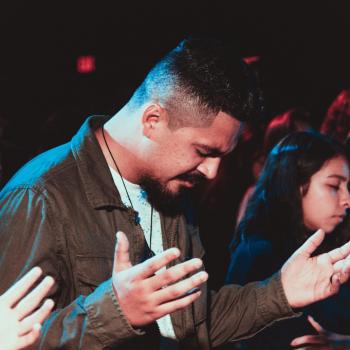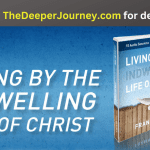How to Experience Greater Things
John 1:43-51
What to Expect in 2018 Part 2
Welcome to 20181
Our phones are wireless,
Our cooking is fireless,
Our cars are keyless,
Our food is fatless,
Our dresses are sleeveless,
Our relationships are meaningless,
Our attitudes are careless,
Our feelings are heartless.
Our babies are fatherless,
Our children are mannerless,
Our educations is valueless,
Our youth are jobless.
Our leaders are shameless,
Our politicians are worthless,
Our government is clueless!
We are speechless.
Doesn’t that sound like 2017 to you? Doesn’t that sound like the state of the country today? How do you rise from such difficulty?
When you follow Jesus, there are greater things ahead for you. No matter how many difficulties you had last year in 2017, with Jesus you can still see greater things in 2018.
HOW I CAN SEE GREATER THINGS THIS YEAR WITH JESUS
1. The more I follow Jesus, the more I will see greater things.
“The next day Jesus decided to leave for Galilee. He found Philip and told him, “Follow me.”” (John 1:43, CSB)
This is the major truth of this text. These four men (Philip, Andrew, Peter, and Nathanael) all had a life-changing experience with Jesus. They had heard about him from John the Baptist. But it took a personal experience for them to see Jesus for themselves. Jesus tells Philip to follow Him. It is a life-changing experience. Like Philip, your life is never going to be the same once you decide to follow Him.
Now let’s define what it means to follow Jesus. Following Jesus does not mean that I come and make just a confession and say I believe in Jesus. Following Jesus is a day-by-day dependence upon Him. These men came to Jesus through a process, not just a one-time decision. Here, they are building a new relationship with Jesus. Later, they will come to realize the enormous responsibility it takes to be with Jesus.
Following Jesus means that I will see greater things. Some of these greater things will be better things. Many of these greater things will be difficult things. But the better and the difficult things become greater things when you have a relationship with Jesus. Some people will say: “Yes, I can have better things. I can cope with difficult things and hard things without Jesus.” Maybe, but they will never be “greater things” without Jesus. A relationship with Jesus is what makes life greater than before. A trust in Jesus makes your life greater.
2. The greater things I experience are meant to be shared with the lost.
“Now Philip was from Bethsaida, the hometown of Andrew and Peter. Philip found Nathanael and told him, “We have found the one Moses wrote about in the law (and so did the prophets): Jesus the son of Joseph, from Nazareth.”” (John 1:44–45, CSB)
Philip and Nathanael were from Bethsaida. Philip had a Greek name (meaning “horse lover”) that was popular in Hellenistic Judaism. His brother’s Hebrew name (Nathanael, meaning “gift from God”) shows the mingling of cultures that must have been common in this area.2
But a Christian should never be selfish with the greater things that one experiences. Our “greater things” that we experience should be shared with the loss. Philip goes home and tells his brother that he has found the Person that the Old Testament was talking about. He was the Savior who would come and save Israel.
Like Philip, you and I are going to run into people who may have problems with Jesus. Some of us who have been Christians for some time may forget this simple point. But some lost people don’t like Jesus. So you may encounter resistance. Now, they may say that they don’t like Christians or they don’t like the church. But they are just using that as an excuse. What they really believe is that they don’t want to trust Jesus. This leads me to the next point about seeing greater things with Jesus this year.
3. When I run into lost people who are skeptical, inviting is better than arguing.
““Can anything good come out of Nazareth?” Nathanael asked him. “Come and see,” Philip answered.” (John 1:46, CSB)
When I build my relationship with Jesus, if I am truly following Jesus, if I am truly doing what He tells me, then I am going to encounter lost people. You can’t be a Christian and not obey the Great Commandment. We are called to live our lives for Jesus, seeing the greater things, and sharing our faith with others. But some lost people you and I encounter will be skeptical. The lesson you see here is that when you encounter a skeptic, inviting is better than arguing.
In this exchange, one sees that Philip found Nathanael. Nathanael asked a skeptic question: “What good comes out of Nazareth?”
Off the beaten path, Nazareth was forgotten and forsaken economically, unimportant militarily, and insignificant politically. Nathanael, however, was referring to more than merely the isolation of Nazareth. A student of Scripture, he knew the promise of Micah 5:2, which stated that the Messiah would come not from Nazareth but from Bethlehem.3
How did Philip respond? He didn’t give him a theological argument. Philip gave him an experiential one. He said: “Look, come and see for yourself.”
In the hospital one night, Pastor Jeremiah visited a young patient, and her first words were, “Pastor Jeremiah, I appreciate your coming to visit, but I’m an atheist, and I don’t want to talk about any spiritual stuff.” the pastor said, “Well, that’s alright. Could I ask you one question?” She said, “Sure.” I said, “Have you come to the place in your spiritual life where you can say that you know for certain that were you to die tonight, you’d go to heaven?” She said, “No, sir, I haven’t. You know, that really frightens me.”
He said, “Well, could I help you understand how I came to know that?” She said, “That’d be great.” He spent the next hour going through the gospel, and she gave her life to Christ. The word atheist never came up again in the conversation. Pastor Jeremiah learned long ago that, rather than spending time trying to argue people into Christ, the main thing is to say, “Just come and see. Let me tell you what Christ has done for me.” If you’re saved today, find somebody and tell him what Jesus had done for you.4
The Bible is inerrant, it is without error. It is infallible. There are no mistakes. However, sometimes the best argument is from experience.
4. The Gospel is the same. Yet, every Christian’s experience with Jesus will be uniquely different than others.
“Then Jesus saw Nathanael coming toward him and said about him, “Here truly is an Israelite in whom there is no deceit.” “How do you know me?” Nathanael asked. “Before Philip called you, when you were under the fig tree, I saw you,” Jesus answered. “Rabbi,” Nathanael replied, “You are the Son of God; you are the King of Israel!”” (John 1:47–49, CSB)
This leads me to the next point about experiencing greater things with Jesus. Your experience is unique. Your experience with Jesus is different than mine. Paul’s experience on the Damascus Road was very different than Peter’s experience on Mount Hermon.
In Jesus’ day, students traditionally studied under fig trees. The fig tree being the national symbol of Israel, I believe it was under a fig tree that Nathanael was very likely studying Genesis 28—the story of Jacob in the wilderness.
Although it has been said that the softest pillow is a good conscience, fearing for his life because of his treachery and deceit, Jacob used a rock. As he slept, he saw a ladder extending from the heavens to the earth, with angels ascending and descending upon it. “Truly God is in this place and I knew it not,” Jacob declared.
That is why, in the midst of his study of Genesis 28, Jesus approached Nathanael, calling him an Israelite in whom there is no guile or no “Jacob.”5
Jesus knew that Nathanael was bring prepared by the Scriptures for His encounter with Nathanael. This is how God works to build a person’s relationship with Jesus. This is why reading the Bible on a regular basis is important. You are reading the Bible, and “boom” God comes to you in your moment of need where the Holy Spirit speaks to you or an event occurs that proves not just that the Bible was true, but that God was working in your life. This is how the “greater things” build in your life as a Christian.
5. Jesus always challenges my faith as He continues to build a relationship with me.
“Jesus responded to him, “Do you believe because I told you I saw you under the fig tree? You will see greater things than this.” Then he said, “Truly I tell you, you will see heaven opened and the angels of God ascending and descending on the Son of Man.”” (John 1:50–51, CSB)
What is Jesus talking about here? Nathanael called Jesus the “Son of God.” Jesus calls Himself the “Son of Man.” Anytime Jesus uses that title, He is talking about His role in judgment. It comes from the image of the “Judge” in Daniel.
“I continued watching in the night visions, and I saw One like a son of man coming with the clouds of heaven. He approached the Ancient of Days and was escorted before Him. He was given authority to rule, and glory, and a kingdom; so that those of every people, nation, and language should serve Him. His dominion is an everlasting dominion that will not pass away, and His kingdom is one that will not be destroyed.” (Daniel 7:13-14 HCSB)
The title “Son of Man” appears thirteen times in the Gospel of John. Each time it is used, it is connected with Jesus having the authority to judge the world. So Jesus was saying: “Look, I know the future, and I will be the judge of your future.”
Maybe you have gone through many changes. Could you have predicted all that happened to you or your family in 2017, when it was 2016? No. The same is true with 2018.
However, people are looking to their future and they are wondering how it is going to be.
Truth: Jesus will always know more about me than I will ever know about Him.
So what is Jesus showing us now? What does Jesus want us to do in 2018? While I pointed out some things for the church last week, I believe that Jesus wants to show you greater things in 2018 for yourselves as well.
Here is a preview:
“You will see greater things than this.”
QUESTION: What are “the greater things” that Jesus wants you to see in 2018?
This is the promise that I am praying for this church. I am praying that Jesus will show my wife greater things this year. I pray that Jesus will show you many things in 2018. The Holy Spirit will show me greater things in 2018. God will show Washburn First Baptist Church greater things in 2018.
As a result, what will it take to see “more things than this” in 2018?
Faith.
Nathanael questioned whether anything good could come from Galilee. Likewise, there are many people who question the same things about Jesus. But Jesus challenges us to trust Him. It takes trusting first Jesus for eternity and then trusting that Jesus knows more about 2018 than we do.
The promise is simple: What “greater things than this” will Washburn First Baptist see in 2018?
What “greater things than this” will your family see in 2018? What “greater things than this” will you see in 2018?
We don’t know what 2018 will bring if we could guess ourselves. But with Jesus, I can trust that He knows more about my life than I think I know. So my challenge is simple. Pray and ask Jesus this question:
“What greater things does You want to do in my life in 2018?”
1 Internet, https://www.facebook.com/cosmic.intelligenceagency/photos/a.166278676762894.39072.164324963624932/1776402209083858/?type=3, originally (perhaps) from https://guyaneseonline.wordpress.com/2013/02/26/welcome-to-the-21st-century/, accessed on 10 January 2018.
2 Gary M. Burge, John, The NIV Application Commentary (Grand Rapids, MI: Zondervan Publishing House, 2000), 77.
3 Jon Courson, Jon Courson’s Application Commentary (Nashville, TN: Thomas Nelson, 2003), 442.
4 Robert J. Morgan, Nelson’s Annual Preacher’s Sourcebook, 2006 Edition. (Nashville, TN: Thomas Nelson Publishers, 2006), 105.
5 Jon Courson, Jon Courson’s Application Commentary (Nashville, TN: Thomas Nelson, 2003), 443.
Photo by Christopher Burns on Unsplash

















